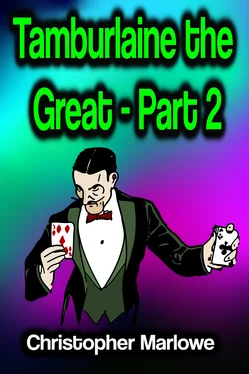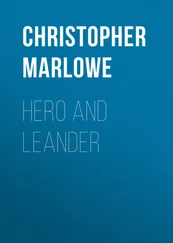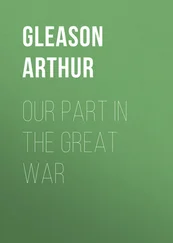Thou shalt be made a king and reign with me,
Keeping in iron cages emperors.
If thou exceed thy elder brothers' worth,
And shine in complete virtue more than they,
Thou shalt be king before them, and thy seed
Shall issue crowned from their mother's womb.
CELEBINUS. Yes, father; you shall see me, if I live,
Have under me as many kings as you,
And march with such a multitude of men
As all the world shall 38 tremble at their view.
TAMBURLAINE. These words assure me, boy, thou art my son.
When I am old and cannot manage arms,
Be thou the scourge and terror of the world.
AMYRAS. Why may not I, my lord, as well as he,
Be term'd the scourge and terror of 39 the world?
TAMBURLAINE. Be all a scourge and terror to 40 the world,
Or else you are not sons of Tamburlaine.
CALYPHAS. But, while my brothers follow arms, my lord,
Let me accompany my gracious mother:
They are enough to conquer all the world,
And you have won enough for me to keep.
TAMBURLAINE. Bastardly boy, sprung 41 from some coward's loins,
And not the issue of great Tamburlaine!
Of all the provinces I have subdu'd
Thou shalt not have a foot, unless thou bear
A mind courageous and invincible;
For he shall wear the crown of Persia
Whose head hath deepest scars, whose breast most wounds,
Which, being wroth, sends lightning from his eyes,
And in the furrows of his frowning brows
Harbours revenge, war, death, and cruelty;
For in a field, whose superficies 42 Is cover'd with a liquid purple veil,
And sprinkled with the brains of slaughter'd men,
My royal chair of state shall be advanc'd;
And he that means to place himself therein,
Must armed wade up to the chin in blood.
ZENOCRATE. My lord, such speeches to our princely sons
Dismay their minds before they come to prove
The wounding troubles angry war affords.
CELEBINUS. No, madam, these are speeches fit for us;
For, if his chair were in a sea of blood,
I would prepare a ship and sail to it,
Ere I would lose the title of a king.
AMYRAS. And I would strive to swim through 43 pools of blood,
Or make a bridge of murder'd carcasses, 44 Whose arches should be fram'd with bones of Turks,
Ere I would lose the title of a king.
TAMBURLAINE. Well, lovely boys, ye shall be emperors both,
Stretching your conquering arms from east to west:—
And, sirrah, if you mean to wear a crown,
When we 45 shall meet the Turkish deputy
And all his viceroys, snatch it from his head,
And cleave his pericranion with thy sword.
CALYPHAS. If any man will hold him, I will strike,
And cleave him to the channel 46 with my sword.
TAMBURLAINE. Hold him, and cleave him too, or I'll cleave thee;
For we will march against them presently.
Theridamas, Techelles, and Casane
Promis'd to meet me on Larissa-plains,
With hosts a-piece against this Turkish crew;
For I have sworn by sacred Mahomet
To make it parcel of my empery.
The trumpets sound; Zenocrate, they come.
Enter THERIDAMAS, and his train, with drums and trumpets.
Welcome, Theridamas, king of Argier.
THERIDAMAS. My lord, the great and mighty Tamburlaine,
Arch-monarch of the world, I offer here
My crown, myself, and all the power I have,
In all affection at thy kingly feet.
TAMBURLAINE. Thanks, good Theridamas.
THERIDAMAS. Under my colours march ten thousand Greeks,
And of Argier and Afric's frontier towns
Twice twenty thousand valiant men-at-arms;
All which have sworn to sack Natolia.
Five hundred brigandines are under sail,
Meet for your service on the sea, my lord,
That, launching from Argier to Tripoly,
Will quickly ride before Natolia,
And batter down the castles on the shore.
TAMBURLAINE. Well said, Argier! receive thy crown again.
Enter USUMCASANE and TECHELLES.
Kings of Morocco 47 and of Fez, welcome.
USUMCASANE. Magnificent and peerless Tamburlaine,
I and my neighbour king of Fez have brought,
To aid thee in this Turkish expedition,
A hundred thousand expert soldiers;
]From Azamor to Tunis near the sea
Is Barbary unpeopled for thy sake,
And all the men in armour under me,
Which with my crown I gladly offer thee.
TAMBURLAINE. Thanks, king of Morocco: take your crown again.
TECHELLES. And, mighty Tamburlaine, our earthly god,
Whose looks make this inferior world to quake,
I here present thee with the crown of Fez,
And with an host of Moors train'd to the war, 48 Whose coal-black faces make their foes retire,
And quake for fear, as if infernal 49 Jove,
Meaning to aid thee 50 in these 51 Turkish arms,
Should pierce the black circumference of hell,
With ugly Furies bearing fiery flags,
And millions of his strong 52 tormenting spirits:
]From strong Tesella unto Biledull
All Barbary is unpeopled for thy sake.
TAMBURLAINE. Thanks, king of Fez: take here thy crown again.
Your presence, loving friends and fellow-kings,
Makes me to surfeit in conceiving joy:
If all the crystal gates of Jove's high court
Were open'd wide, and I might enter in
To see the state and majesty of heaven,
It could not more delight me than your sight.
Now will we banquet on these plains a while,
And after march to Turkey with our camp,
In number more than are the drops that fall
When Boreas rents a thousand swelling clouds;
And proud Orcanes of Natolia
With all his viceroys shall be so afraid,
That, though the stones, as at Deucalion's flood,
Were turn'd to men, he should be overcome.
Such lavish will I make of Turkish blood,
That Jove shall send his winged messenger
To bid me sheathe my sword and leave the field;
The sun, unable to sustain the sight,
Shall hide his head in Thetis' watery lap,
And leave his steeds to fair Bootes' 53 charge;
For half the world shall perish in this fight.
But now, my friends, let me examine ye;
How have ye spent your absent time from me?
USUMCASANE. My lord, our men of Barbary have march'd
Four hundred miles with armour on their backs,
And lain in leaguer 54 fifteen months and more;
For, since we left you at the Soldan's court,
We have subdu'd the southern Guallatia,
And all the land unto the coast of Spain;
We kept the narrow Strait of Jubalter, 55 And made Canaria call us kings and lords:
Yet never did they recreate themselves,
Or cease one day from war and hot alarms;
And therefore let them rest a while, my lord.
TAMBURLAINE. They shall, Casane, and 'tis time, i'faith.
TECHELLES. And I have march'd along the river Nile
To Machda, where the mighty Christian priest,
Call'd John the Great, 56 sits in a milk-white robe,
Whose triple mitre I did take by force,
And made him swear obedience to my crown.
]From thence unto Cazates did I march,
Where Amazonians met me in the field,
With whom, being women, I vouchsaf'd a league,
And with my power did march to Zanzibar,
The western part of Afric, where I view'd
The Ethiopian sea, rivers and lakes,
But neither man nor child in all the land:
Therefore I took my course to Manico,
Where, 57 unresisted, I remov'd my camp;
And, by the coast of Byather, 58 at last
I came to Cubar, where the negroes dwell,
And, conquering that, made haste to Nubia.
There, having sack'd Borno, the kingly seat,
I took the king and led him bound in chains
Unto Damascus, 59 where I stay'd before.
TAMBURLAINE. Well done, Techelles!—What saith Theridamas?
Читать дальше












